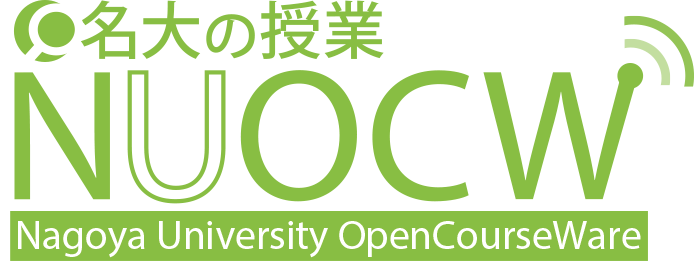英語(セミナー)-2018
| 講師 | Chad NILEP 准教授 |
|---|---|
| 開講部局 | 教養教育院 2018年度 後期 |
| 対象者 | 法・経済学部 (2単位・週1回全15回) |
授業の内容
This is a seminar in the Socratic tradition. That means the teacher will not simply deliver lessons. Instead each student will read material, and then everyone will discuss it so that we can understand new ideas.
The class will be held in English. However, we will not study about the English language. We will use English as a tool for learning about society and social change. Use English as much as you can during class discussions and in your presentations.
You must complete the reading before class. When you come to class, you should be prepared to talk about the themes in the reading for the week. Everyone will have a chance to ask questions, share opinions, and learn from one another.
In addition, groups of students will work together on a presentation about a social issue. Your presentation will be based on a book you read about an issue you choose.
Outside of class, you will work on your own independent project. You can choose a recommended project that interests you, or you can create your own project, suitable to your own interests and the English skills you want to improve.
授業の目標
The aim of this course is to help students acquire a deeper understanding of social and cultural issues through the point of view of contemporary English-speaking societies. Participants study various subjects through English language materials and discuss these issues in small groups. By working in small groups participants develop a basis for deeper understanding of the norms and practices of English-language scholarship, and develop communication abilities appropriate for participation in a university setting.
本授業の目的およびねらい
本授業は、英語という言語、その言語が培ってきた文化、および現代社会における英語文化についての深い教養を身につけることをその目的とする。英語・英語文化にかかわる様々な主題についての文献・資料調査、調査に基づく英語による口頭発表など、少人数授業の利点を生かした学習活動を行い、研究拠点大学である名古屋大学の学生にふさわしい学術英語の運用能力をさらに高めることを目指す。
本授業の主な特徴
The course works primarily through group discussion, together with readings on a broad range of topics. Students read materials before class, and then discuss their ideas and opinions so that everyone can understand new ideas. This not only gives participants opportunities for reading and speaking in English, but also challenges them to formulate and communicate their own ideas, and to understand the ideas of other participants.
Students work in small groups to create a presentation on a social issue of their own choosing. Students choose a non-fiction book to read and discuss in a small group. The group then works together to present both the main ideas of the book and their reactions to the book for the other seminar participants.
Each student also completes an independent project. Students can select an independent project that meets their own interests as well as the specific language and study skills they wish to improve.
教科書
Dave Rear and Hisashi Sugito. Understanding Our New Challenges. Seibido. ISBN 978-4-7919-3426-3
スケジュール
| 回 | 講義内容 | Reading and homework |
|---|---|---|
| 1 | How do people learn many languages? | Textbook Unit 1, pages 1-5 Start looking for a group for your presentation Choose an independent project |
| 2 | How is social media changing the world? | Unit 4, pages 16-20 Ask members to join your presentation group Tell the instructor about your independent project |
| 3 | What time should people go to sleep? | Unit 6, pages 26-30 Tell the instructor the members of your group |
| 4 | Should government promote happiness? | Unit 7, pages 31-35 Find a book for your presentation |
| 5 | Should there be any limits on free speech? | Unit 8, pages 36-40 Tell the instructor the title of the book for your group presentation |
| 6 | Should we try to live forever? | Unit 10, pages 46-50 Don't forget to work on your independent project |
| 7 | Which jobs are at risk because of robots? | Unit 12, pages 56-60 Make sure all group members read the book for your presentation |
| 8 | Should humans try to change nature? | Unit 13, pages 61-65 |
| 9 | Can we stop global warming? | Unit 14, pages 66-70 |
| 10 | Is free trade good for all, or good for some? | Unit 17, pages 81-85 |
| 11 | Why is there a gap between rich and poor people? | Unit 18, pages 86-90 |
| 12 | Do developing countries need our help? | Unit 20, pages 96-100 Prepare for your group presentation |
| 13 | Group presentations | After your group presentation, write your short report |
| 14 | Group presentations | After your group presentation, write your short report |
| 15 | Independent projects due |
講義ノート
成績評価
Course grade is based on a group presentation, an independent project, self-study, and active participation in class discussions.
投稿日
April 29, 2020
